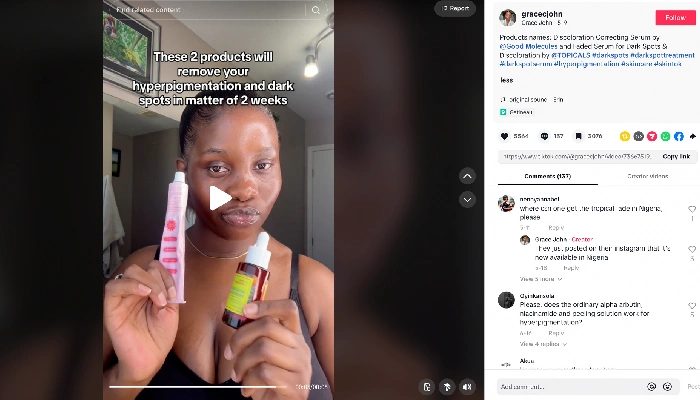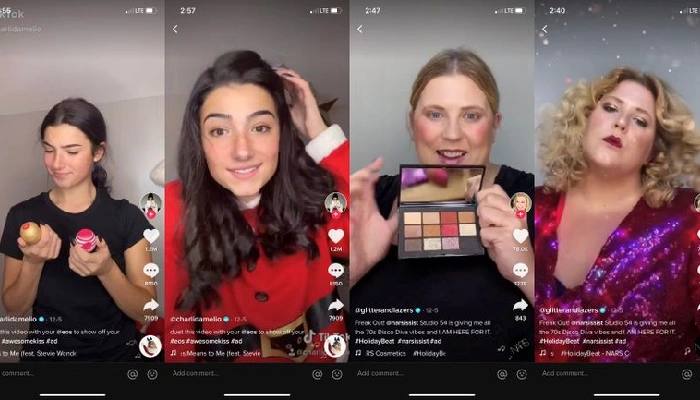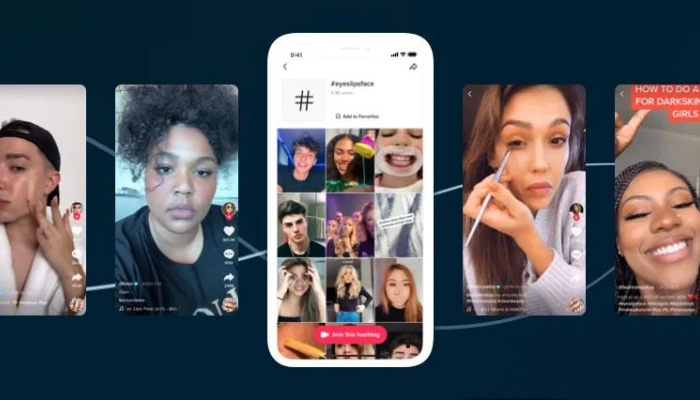TikTok has become one of the most influential social media platforms, captivating millions of users across the globe. Launched in 2016, the app quickly rose to prominence, attracting users of all ages with its short, engaging videos. Today, TikTok is not just a source of entertainment but a powerful marketing tool, thanks in large part to its influencers.
TikTok influencers are individuals who have garnered significant followings by creating content that resonates with specific audiences. These creators have the ability to sway opinions, drive trends, and influence purchasing decisions. For businesses, collaborating with TikTok influencers can lead to increased brand awareness, engagement, and revenue. This article delves into who TikTok influencers are, why they matter, and how businesses can effectively partner with them.
Who Are TikTok Influencers?
Defining TikTok Influencers
TikTok influencers are content creators who have built a substantial following on the platform by consistently producing entertaining, educational, or inspiring videos. They span various niches, from fashion and beauty to gaming and comedy, catering to a diverse audience. Unlike traditional celebrities, TikTok influencers often feel more relatable and accessible to their followers, which makes their endorsements more impactful.

Types of TikTok Influencers
TikTok influencers can be categorized based on the size of their following:
- Nano-Influencers (1K – 10K followers): These creators have smaller, highly engaged audiences. They are ideal for niche markets and often have strong personal connections with their followers.
- Micro-Influencers (10K – 100K followers): Micro-influencers balance reach and engagement, making them effective for targeted campaigns. Their followers see them as authentic and trustworthy.
- Macro-Influencers (100K – 1M followers): These influencers have broader appeal and can reach a large audience. They are often seen as experts in their niches.
- Mega-Influencers (1M+ followers): Mega-influencers include celebrities and top-tier TikTok creators. They have massive reach but may lack the personal connection smaller influencers have with their followers.
Characteristics of Successful TikTok Influencers
- Consistency: Regular posting helps influencers stay visible and maintain engagement.
- Creativity: Successful influencers innovate with their content, setting trends and standing out.
- Authenticity: Followers value influencers who are genuine and relatable.
- Engagement: High engagement rates indicate that followers are actively interacting with the influencer’s content.
- Adaptability: TikTok influencers stay relevant by adapting to platform updates and emerging trends.
Why TikTok Influencers Matter
The Power of TikTok
TikTok’s algorithm prioritizes content quality over follower count, giving influencers of all sizes the chance to go viral. The platform’s unique format and user base—predominantly Gen Z and Millennials—make it an ideal space for influencers to drive trends and spark conversations.
Authenticity and Relatability
TikTok influencers’ relatability makes them powerful brand ambassadors. Unlike traditional advertisements, influencer content often feels organic and less intrusive, which resonates with viewers.

High Engagement Rates
Compared to other platforms, TikTok boasts significantly higher engagement rates. This means that influencer collaborations on TikTok have the potential to generate more impressions, clicks, and conversions.
Trend-Setting Ability
From viral dances to hashtag challenges, TikTok influencers play a pivotal role in shaping trends. Brands can leverage this trend-setting power to increase their visibility and relevance.
How to Work With TikTok Influencers
Step 1: Define Your Goals
Before reaching out to influencers, identify what you hope to achieve. Common goals include:
- Increasing brand awareness
- Driving website traffic
- Boosting sales
- Building a community
Step 2: Identify the Right Influencers
Finding the right influencers is crucial to the success of your campaign. Consider the following factors:
Relevance
The influencer’s niche should align with your brand. For instance, a beauty brand would benefit more from partnering with a makeup artist than a gaming influencer.

Audience Demographics
Ensure the influencer’s audience matches your target market in terms of age, gender, location, and interests.
Engagement Rate
High engagement rates often indicate a loyal and active follower base. Look for influencers whose followers interact frequently with their content.
Content Style
Assess whether the influencer’s tone and style align with your brand’s voice.
Step 3: Reach Out to Influencers
Once you’ve identified potential influencers, initiate contact. You can do this by:
- Sending a direct message on TikTok or other social media platforms
- Emailing them using contact details provided in their bio
- Working through influencer marketing platforms like AspireIQ, Upfluence, or TikTok Creator Marketplace
Step 4: Craft a Compelling Offer
Influencers are more likely to collaborate if you present a clear and appealing proposition. Be specific about:
- The scope of the collaboration (e.g., a single post, a series of videos, a hashtag challenge)
- Compensation (e.g., monetary payment, free products, or discounts)
- Deadlines and deliverables
Step 5: Provide Creative Freedom
TikTok influencers know their audiences best. Allowing them creative freedom ensures the content feels authentic and resonates with viewers.
Step 6: Track and Analyze Results
Use TikTok analytics or third-party tools to monitor the campaign’s performance. Key metrics include:
- Views
- Likes and comments
- Shares
- Follower growth
- Click-through rates
- Sales or conversions
Best Practices for Collaborating With TikTok Influencers
Build Long-Term Relationships
Establishing long-term partnerships with influencers can lead to consistent brand exposure and deeper connections with their audiences.
Leverage Hashtag Challenges
Encourage influencers to participate in or create branded hashtag challenges. These challenges often go viral, generating immense reach and engagement.
Combine Influencer Campaigns With Paid Ads
Amplify your influencer campaigns by boosting their posts with TikTok ads. This ensures your content reaches a broader audience.

Be Transparent
Clearly communicate your expectations and provide influencers with all necessary information about your brand and campaign goals.
Respect FTC Guidelines
Ensure that influencers disclose their partnerships with your brand to maintain transparency and comply with advertising regulations.
Examples of Successful TikTok Influencer Campaigns
Guess’s #InMyDenim Challenge
Guess collaborated with TikTok influencers to launch the #InMyDenim challenge, encouraging users to showcase their denim looks. The campaign went viral, driving millions of user-generated videos and increasing brand awareness.
e.l.f. Cosmetics’ #EyesLipsFace Campaign
e.l.f. Cosmetics partnered with influencers to create a custom song and hashtag challenge. The campaign became one of the most successful in TikTok’s history, generating over 4 billion views.
Ocean Spray and Nathan Apodaca
Nathan Apodaca’s viral TikTok video featuring Ocean Spray cranberry juice and Fleetwood Mac’s “Dreams” organically promoted the brand. Ocean Spray later collaborated with Nathan, leveraging the viral moment for further exposure.

Challenges and How to Overcome Them
Finding the Right Influencers
With millions of creators on TikTok, identifying the perfect influencer can be overwhelming. Use tools like TikTok Creator Marketplace or influencer marketing platforms to streamline the process.
Measuring ROI
Tracking the effectiveness of influencer campaigns can be challenging. Define clear metrics and use analytics tools to measure performance.
Maintaining Authenticity
Overly scripted content can feel inauthentic. Allow influencers to maintain their creative voice while aligning with your brand’s message.
Budget Constraints
While mega-influencers can be expensive, collaborating with nano- or micro-influencers offers a cost-effective alternative without compromising engagement.
Conclusion
TikTok influencers have revolutionized the way brands connect with audiences. Their authenticity, creativity, and trend-setting abilities make them invaluable partners for businesses looking to thrive in the digital age. By understanding who TikTok influencers are and following best practices for collaboration, brands can unlock the full potential of influencer marketing on this dynamic platform. Whether you’re launching a new product or building long-term brand awareness, working with TikTok influencers can be a game-changing strategy.